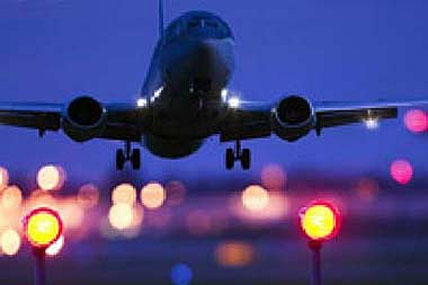With gas prices on the rise, you might think a summer trip will cost more than you can afford this year. But if you're willing to do a little homework and planning, you'll find that most any trip can be affordable.
These days, Americans are asking themselves if they can afford a getaway without dipping into college or retirement savings. The answer is a resounding yes! But only if you are savvy, flexible and vigilant when it comes to planning.
"Regardless of the state of the economy, you want to use your time and money smartly," says television travel-show host and best-selling guidebook writer Rick Steves. "Start by equipping yourself with good info."
Should you travel by land, sea or air? That largely depends on where you want to travel and what you like to do on vacation.
"It's not necessarily about where you go, but finding value in your destination," says CBS News travel editor Peter Greenberg, who also publishes the website that bears his name.
Another debate is whether domestic vacations are cheaper than going abroad. In most cases, a U.S. destination is probably more cost-effective -- but not always. For example, you can at times find direct fares to places in Europe and South America that are less expensive than the cost of a transcontinental domestic flight.
By Air
Air travel over the past few years has been nothing if not frustrating. Long lines, frequent delays, crowded cabins and sometimes snarly staff are common, especially during the crowded summer vacation months.
The perplexing nature of airline fares doesn't make it any easier. USA Today recently reported that fares are on the rise again this summer and are unlikely to fall anytime soon. And now that airlines are looking again at soaring fuel prices and have discovered the revenue gained from baggage fees, meals and so on, more extra charges may well follow.
Keep these guidelines in mind when booking air travel:
- Book early. The earlier you book, the lower the rates and the more choice in dates and times, as well as seats.
- Use miles. But remember, booking early is critical when you're using credit card rewards or frequent-flier programs.
- Be flexible. If you can be open-ended about when and where you go, you can score big on last-minute online airfares.
- Fly overnight. "Red-eyes" can save you money. Some find these flights dreadful, while others think they're OK.
Best Time to Fly
Traveling midweek -- especially Tuesday and Wednesday -- tends to be cheaper than flying on either side of the weekend. But you can also find great fares on Saturday, when most travelers are already at their destinations. A small investment in time to explore your flight options can yield major savings.
By Land
Road trips have been part of an American cultural tradition since the end of World War II, when the automobile and long vacations became affordable for the middle class. For U.S. travel, driving involves the least amount of hassle in most cases. But nearly gone are the days when you and the family could show up at the Grand Canyon without reservations and easily find a vacant motel room. Now you've got no choice but to plan ahead for the more popular destinations.
Given the volatility of the oil market, gas prices are unpredictable but are likely to keep going up. But that doesn't mean you shouldn't hit the road. Whether you drive a large SUV or an economy sedan, there are a number of things you can do to get better gas mileage:
- Slow down. You get the best fuel economy at around 55 mph.
- Inflate tires properly. According to the Energy Department, you can improve your gas mileage by up to 3.3% when you keep your tires inflated at the recommended pressure.
- Consult websites. Become familiar with websites such as gasbuddy.com that track daily gas station prices. A quick glance at a U.S. map or state maps can show which routes offer lower gas prices.
Car Rental Tips
If you're flying somewhere and renting a car, you can often get much lower rates by surfing the Internet for bargains or by booking through rental-car programs offered by organizations such as USAA.
You should be aware that some airports now charge sizable "taxes" on vehicles rented from airport locations. "Airport fees and surcharges vary by location," says Alice Pereira of Avis Budget Group, parent company of Avis and Budget Rent A Car. "Budget-conscious travelers should take this into consideration and plan ahead before choosing a vacation destination. They should consider flying into alternative airports where fees and surcharges may be less." Examples of such airports include Long Beach in Southern California and Westchester County Airport in the New York City area.
RV Rentals Save Money
Renting a recreational vehicle or motor home is another great way to save bucks on the road. For one thing, it eliminates hotel expenses. But once again, it pays to be flexible in terms of both where and when you want to travel. Cruise America, for instance, offers deals on one-way RV rentals to Arizona with rates as low as $12 per night and no drop fees.
"With an RV, items like fuel, parking and maintenance can add up," says Greenberg. "But do the math -- you're not flying on an airline or checking bags. You're not staying at a hotel, and you don't have to eat out every night."
By Sea
Most of us have seen those Carnival ads pitching cruises for less than $70 per day. That price is no joke. With passengers often having to fly to reach their port of embarkation and the cost of the cruise on top of that, the recession has hit the floating vacation industry hard. Like airlines, cruise companies can reduce their frequency. But docking a 3,000-passenger ship is a lot more expensive than parking a 200-seat airliner. In many cases, it makes the most sense for companies to sail the ship at much lower rates.
But it may not be that way much longer. "We're beginning to see prices slowly inching back up to the levels we saw in late 2008," says Laurie Bowden, vice president of marketing for Explore Cruise & Travel, providing travel services for USAA members. "Both Royal Caribbean and Carnival have recently reported booking volumes for 2011 sailings to be strong, and prices for those bookings are higher than last year. We're hearing the same from all major cruise lines."
Some of the guidelines that apply to air travel also apply to cruises:
- Book early. The earlier you book, the better. Prices are lower and you also get more choices in cruise lines, sailing dates, cabins, etc.
- Hunt bargains. If you don't mind waiting till the last minute -- and scouring the Internet and working your travel agent for deals -- you can also achieve huge savings.
"If your schedule is completely flexible and you want to feed your adventurous side, you may find some great deals when you book at the last minute," says Bowden. The downside of last-minute bargains is less choice in departure port, dates, cabin type, etc. Inside cabins are always much cheaper than outside cabins with portholes, windows or balconies. Many travelers find an inside cabin an acceptable option for shorter cruises.
Cost-Conscious Cruises
Consider sailing from nontraditional ports such as Charleston, S.C., Galveston, Texas, or smaller coastal cities that you can drive to rather than flying to Miami or Los Angeles. "There is not necessarily a pricing advantage for the cruise itself," says Bowden. "The value lies in the accessibility, ease of travel and related expense to get to these points of embarkation."
Once again, shop around and ask for discounts related to who you are and what you belong to. USAA's cruise program, for instance, offers special travel savings for members and a price match guarantee. Disney Cruise Line also offers some of the best active-duty military and veteran discounts.









